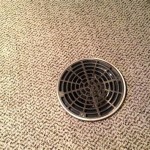How Humid Should Basement Be?
Basements are often the forgotten part of a home, but they can be just as important as any other room. They provide valuable storage space and can even be finished into a living area. However, basements are also prone to moisture problems, which can lead to mold, mildew, and other health hazards. One of the most important factors in controlling moisture in a basement is humidity.
What is humidity?
Humidity is the amount of water vapor in the air. The higher the humidity, the more water vapor there is in the air. Relative humidity is the ratio of the actual amount of water vapor in the air to the maximum amount of water vapor that the air can hold at a given temperature. Relative humidity is expressed as a percentage. For example, if the relative humidity is 50%, the air contains half of the maximum amount of water vapor that it can hold at that temperature.
Why is humidity important in a basement?
Humidity is important in a basement because it can affect the growth of mold and mildew. Mold and mildew thrive in damp environments, so it is important to keep the humidity in your basement as low as possible. High humidity can also cause condensation on the walls and ceiling, which can lead to water damage. In addition, high humidity can make the air feel stuffy and uncomfortable.
What is the ideal humidity for a basement?
The ideal humidity for a basement is between 30% and 50%. This range is low enough to prevent the growth of mold and mildew, but high enough to keep the air from feeling too dry. If the humidity in your basement is too high, you can use a dehumidifier to lower it. If the humidity is too low, you can use a humidifier to raise it.
How can I control the humidity in my basement?
There are several things you can do to control the humidity in your basement, including:
- Ventilate your basement. Open windows and doors to let fresh air in. You can also use a fan to circulate the air.
- Use a dehumidifier. A dehumidifier will remove water vapor from the air. This is a good option if you have a damp basement.
- Use a humidifier. A humidifier will add water vapor to the air. This is a good option if you have a dry basement.
- Seal any cracks or gaps in your foundation. Water can seep into your basement through cracks or gaps in your foundation. Sealing these openings will help to keep the humidity in your basement down.
By controlling the humidity in your basement, you can help to prevent mold and mildew growth, water damage, and other problems. A dehumidifier is a great way to keep the humidity in your basement under control. If you have any questions about how to control the humidity in your basement, you should contact a qualified professional.

How To Achieve An Ideal Basement Humidity Of 30 50

How To Achieve An Ideal Basement Humidity Of 30 50

How To Achieve An Ideal Basement Humidity Of 30 50

How To Lower Your Basement S Humidity Level

A Guide To Controlling Nc Home Humidity Newcomb And Company

Relative Humidity Why You Need To Understand It News And Events For Basement Systems Inc

3 Ways To Prevent Humidity In A Basement Wikihow

How To Achieve An Ideal Basement Humidity Of 30 50

5 Effective Tips To Reduce Humidity In Your Basement News And Events For Thrasher Foundation Repair

What Should Humidity Be In A Crawl Space Nia
Related Posts







